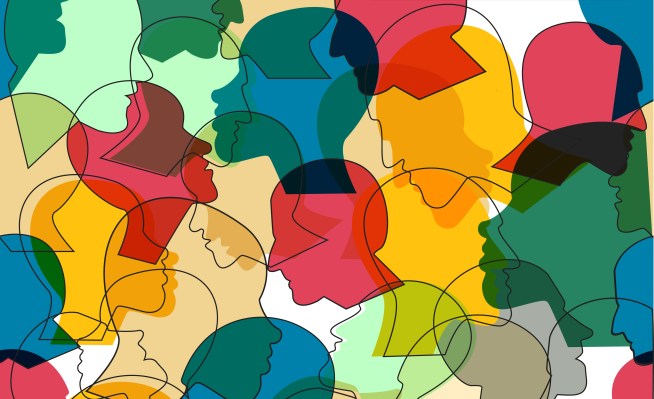One of the biggest drivers for digital identity is to be able to verify who you are and that what you’re saying is real amid the extreme (and somewhat scary) growth of artificial intelligence technology. While there’s a lot of hype around owning your own digital identity, there is a lot of growth that needs to happen to expand the sector and protect people.
Just this week, a song featuring the voices of Drake and The Weeknd garnered over 250,000 Spotify streams and 10 million views on TikTok. But the musicians weren’t even involved in the process. The song was generated by an artist named Ghostwriter who used AI to generate the artists’ voices. (Both Spotify and Apple have since pulled the song from their services.)
“As more and more of these AI deepfakes come out, it’s becoming harder to know if it was [them] or not,” said Sandy Carter, COO and head of business development at Unstoppable Domains. “There are methods we can [use to] validate that you’re human and a person, and [digital identities] could help as the need grows stronger as more AI technology comes out.”
Unstoppable Domains is one of the biggest web3 domain providers in the world and has integrated with over 800 platforms, including Coinbase, OpenSea and Rainbow Wallet, among others. It has about 1,000 partners, and last year, the platform raised $65 million in a Series A at a valuation of $1 billion.
The process for getting a domain is pretty straightforward and similar to buying a website domain. You type in a name, and if it’s not taken, you can claim it for free or purchase one for anywhere from $10 to $100, depending on the top-level domain.
People may want to make their own domains so they have a profile that showcases their NFTs, crypto wallet addresses, Web 2.0 social media and more, all in one place. This type of transparency and self-identification is probably not ideal for a non-doxxed person who doesn’t want the world knowing the ins and outs of what they own, where they have gone or who they are online.
Unstoppable Domains includes users from a number of big-name companies like Amazon’s AWS, Uber and Slack, who have minted their own decentralized domain names as Ethereum-based NFTs.
“At a high level, we view that utility is greater than hype,” she said. “We want domains to be usable, and each integration adds use cases.”
Carter said she thinks that a greater emphasis should be placed on visualizations to show others your digital identity — similar to how Web 2.0 platforms, like Instagram or LinkedIn, show profiles, she said.
Last week, LinkedIn rolled out plans to verify users’ identities and employment, without requiring people to pay for premium subscriptions, like Twitter and Meta’s Instagram and Facebook.
Today, people can say they’ve worked at a certain place or attended a certain event without verification (hopefully what LinkedIn is planning can fix that). But on web3, people can prove their actions and identities through NFTs, Carter said. She showed TechCrunch+ her domain that showcased a certificate from carbon removal marketplace Nori, which indicates she made her NFTs carbon neutral. “I put my money where my mouth is,” she said and has the web3 presence to prove it.
A digital identity is a person’s brand, but “it has more and more usage in the web3 world,” Carter said. “You have social media, wallet connections, micro communities, websites and galleries, and can choose which ones are highlighted” when displaying them on your own profile, she added.
For example, if someone prefers one crypto wallet over another, they should be able to integrate their digital identity — or domain address — with that provider. The domains also allow for digital identities to be transferred across different platforms or metaverses, so people can bring their digital identity across platforms. “It’s important to have breath and scale of coverage,” Carter said.
The biggest challenge — and mission — going forward is getting digital identities in the hands of “every single person,” Carter noted. “We think it’s a human right.”
But when every person can have their own digital identity squared away is hard to pinpoint. Carter predicts that as soon as five years from now, a majority of people will have one, given the widespread adoption of web3 from major brands like Nike, Starbucks and others in recent months.
“We’re starting to see these companies grow up and come into a society” that emphasizes digital ownership, she said. “There’s a lot of movement for widespread adoption.”
